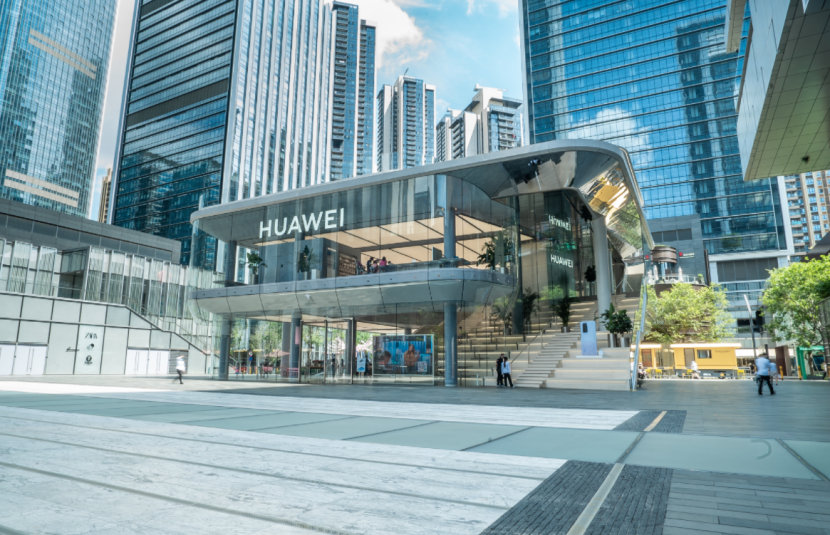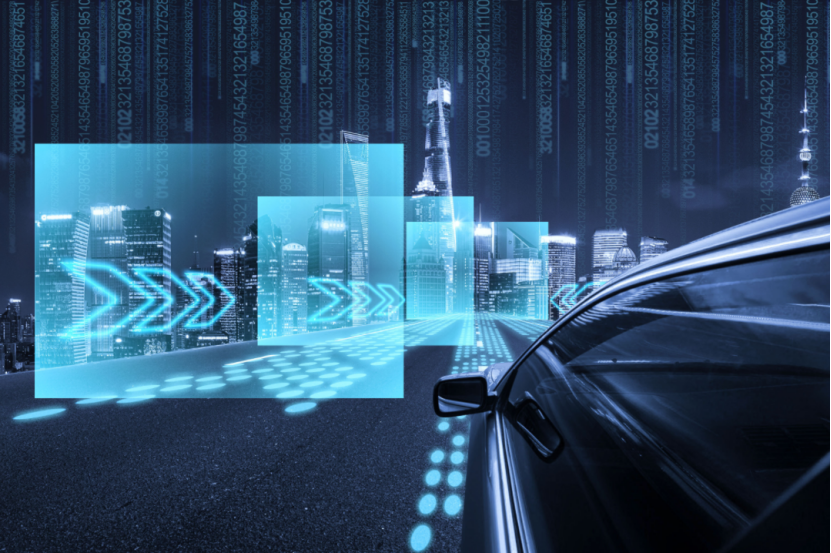State-Owned Automakers Embrace Huawei: Navigating the Balance Between 'Soul' and 'Survival'
![]() 01/20 2025
01/20 2025
![]() 673
673
In the current era of rapid technological advancement, the automotive industry is undergoing a transformative shift from traditional fuel vehicles to new energy vehicles, evolving from mere transportation tools to intelligent mobile terminals. Amidst this evolution, Huawei, leveraging its formidable technological prowess in communications, chips, artificial intelligence, and other domains, has forcefully entered the automotive landscape.
In recent years, a notable trend has emerged: many state-owned automakers have chosen to partner with Huawei, transitioning from initial skepticism or even rejection to enthusiastic embrace. Since the second half of last year, traditional automakers such as Changan, GAC, and SAIC have successively deepened their cooperation projects with Huawei, following the footsteps of Thalys, BAIC, Chery, and JAC. Even private enterprises like BYD and Great Wall, as well as multinational luxury brands such as Audi, have begun collaborating with Huawei.
Observing the industry, it is evident that, with the exception of new automotive entrants and Geely, most domestic traditional automakers have initiated varying degrees of cooperation with Huawei. Amidst this wave of collaboration, a crucial question arises: is the core technology control of automakers (often referred to as their 'soul') being threatened? In the fiercely competitive market, has the pressure to survive become a pivotal factor driving these decisions? How have the priorities between 'soul' and 'survival' shifted?
▍Transformation from Skepticism to Embrace
When Huawei first ventured into the automotive sector, some traditional state-owned automakers harbored significant concerns. In their view, Huawei, as a cross-border player from the communications industry, despite possessing advanced ICT technology, struggled to gain a firm foothold in the traditional and complex realm of automobile manufacturing. Especially in the areas of intelligence, electrification, and connectivity, which are crucial for the future development of automobiles, automakers preferred to rely on their accumulated technology and experience to build their core competitiveness, sometimes even resisting the outsourcing of key technologies to Huawei.
The perspective of Chen Hong, the former chairman of SAIC Group, is quite illustrative. He once unequivocally stated that SAIC would not surrender its 'soul' to Huawei. This statement reflects the widespread anxiety among traditional automakers regarding Huawei's entry into the automotive industry. They believed that the 'soul' of an automobile—namely, core technology and independent R&D capabilities—is the cornerstone for an enterprise to establish itself in the market and maintain its competitiveness. Excessive reliance on Huawei's technology, they feared, could lead to the loss of initiative in future development, turning automakers into 'vassals' of Huawei's technology and gradually eroding their competitive edge in the market.
However, in recent years, the attitude of state-owned automakers towards Huawei has undergone a marked change, swiftly shifting from skepticism to actively embracing cooperation. In November 2023, Changan Automobile took the lead in signing an 'Investment Cooperation Memorandum' with Huawei, investing to acquire equity in a new company focused on Huawei's smart car solutions business. As we entered 2024, Hovo Auto and Mengshi Technology, both subsidiaries of Dongfeng Motor Group, officially announced strategic partnerships with Huawei in January and February, respectively.
SAIC Group has also been reported to be carrying out in-depth cooperation with Huawei since the second half of last year. Additionally, there are rumors that SAIC will invest in Huawei's subsidiary Yinwang, which specializes in the automotive business, further cementing the ties between the two parties. Prior to this, state-owned automakers such as BAIC, Chery, and JAC had already embarked on deep cooperation with Huawei.

The factors contributing to this transformation are multifaceted. From Huawei's perspective, it has achieved remarkable accomplishments in automotive technological research and development, showcasing its robust strength. Huawei has made significant breakthroughs in core technology areas such as intelligent driving, intelligent cabins, and the Internet of Vehicles. These technological advantages have been thoroughly validated in the market. Taking the AITO series models jointly developed by Huawei and Thalys as an example, models like AITO M5 and M7 became instant hits upon their launch. In the third quarter of 2024, Thalys achieved profitability, with a net profit of 2.413 billion yuan, effectively demonstrating the strong market competitiveness of automotive products empowered by Huawei's technology.
Changes in the market environment are another crucial factor behind the shift in the attitude of state-owned automakers. Amidst the accelerated transformation of the global automotive industry towards new energy and intelligence, state-owned automakers face unprecedented competitive pressure. On one hand, leading new energy automotive enterprises such as Tesla and BYD have swiftly risen in the market, capturing a significant share with their advanced battery technology, intelligent configurations, and efficient production models. On the other hand, innovative new automotive forces like NIO, XPeng, and Li Auto have emerged, bringing fresh business models, unique user experiences, and deep applications of intelligent technology to the market, posing a substantial challenge to traditional state-owned automakers.
▍The Impact of Embracing Huawei on the 'Soul'
Currently, the new energy automotive market is experiencing explosive growth, becoming the primary track for the development of the automotive industry. Data released by the China Association of Automobile Manufacturers reveals that in 2024, the production and sales of new energy vehicles reached 12.888 million and 12.866 million units, respectively, increasing by 34.4% and 35.5% year-on-year.
State-owned automakers face severe survival pressure amidst this fierce market competition. To establish a firm foothold in the market and achieve sustainable development, they must accelerate their transformation and upgrading processes and enhance the competitiveness of their products.
According to Professor Zhu Xichan from the School of Automotive Studies at Tongji University, in the early stages of the explosion of NOA (Navigate on Autopilot), the NOA performance of different automakers will vary, and the phenomenon of using OTA (Over-the-Air) updates as a marketing tool to lure customers will persist. In the process of winnowing, NOA products with weak AI capabilities based on data closed loops will be phased out by 2025. This year is set to be decisive for intelligent driving technology in the Chinese automotive market. 'Intelligent driving is the battlefield where automakers compete for supremacy in intelligence.'
Collaborating with Huawei has become a vital strategy for state-owned automakers to navigate market competition and overcome development challenges. By integrating Huawei's advanced technology, state-owned automakers can swiftly elevate the intelligence level of their products, meeting consumers' demands for smart cars and thereby seizing the initiative in the market.
Apart from technological advantages and enhanced market competitiveness, Huawei also brings numerous added values to state-owned automakers. As a globally renowned technology brand, Huawei enjoys high brand recognition and reputation among consumers. Its achievements in the communications industry and leading position in 5G technology, smartphones, and other areas have amassed a vast user base and a favorable brand image. Through collaboration with Huawei, state-owned automakers can leverage Huawei's brand influence to amplify the market attention and appeal of their products.

However, it is essential to note that while collaboration between state-owned automakers and Huawei offers numerous benefits, it also inevitably brings about the risk of homogenization. At the product level, as many state-owned automakers adopt Huawei's intelligent driving and intelligent cabin solutions, it may result in similar intelligent experiences among various vehicle models in the market. When consumers choose products from different state-owned automaker brands, they may not perceive significant differentiation. This can weaken the unique selling points of various brand products, making consumers less brand-loyal when making purchasing decisions, prompting brands to return to the 'track' of creating uniqueness to attract consumers.
From a technological development perspective, excessive reliance on Huawei's technological system may dampen the motivation for independent innovation among state-owned automakers in related fields. With the prolonged use of mature technologies provided by Huawei, the enthusiasm of in-house R&D teams for independently developing intelligent technology may wane, leading to weakened autonomy and independence in technological research and development. Moreover, the homogenization of technological applications is not conducive to the diversified development of the entire automotive industry's technological ecosystem, limiting the boundaries of exploration in technological innovation within the industry and potentially leading to the overall development of the industry falling into a relatively single path dependence—a scenario often referred to as 'losing the soul.'
The collective embrace of Huawei by state-owned automakers is an inevitable choice driven by multiple factors such as technological shortcomings, market competition pressure, and Huawei's inherent advantages. This trend of cooperation, while sparking heated debates about 'soul' and 'survival,' does not signify that state-owned automakers are abandoning their 'soul.' The evolution of the smart car industry cannot be divorced from the collaborative efforts of all stakeholders within the industrial chain. Against the backdrop of the accelerated transformation of the global automotive industry, the collective embrace of Huawei by state-owned automakers is not merely a pragmatic move to address current challenges but also a strategic choice to pave the way for future development.
Typesetting 丨 Yang Shuo Image Source: Shutterstock








